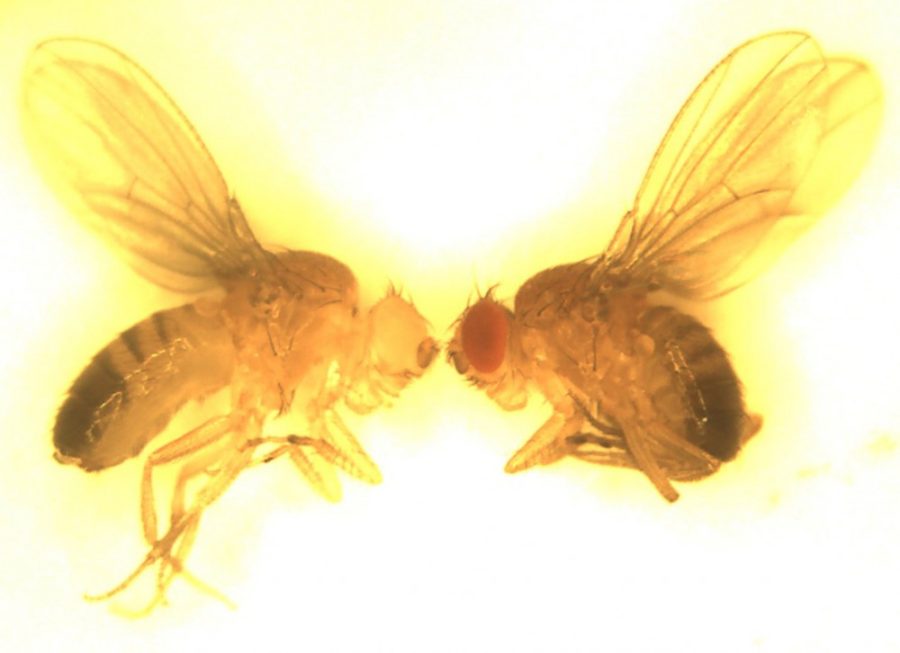When romance comes to mind, the first thought that follows usually isn’t about fruit flies. These tiny, annoying insects, however, can provide a great deal of insight into sex and courtship behaviors.
Although it may be difficult to differentiate male and female fruit flies by observing them eat, sleep and fly, their sexual behaviors are very distinct.
Male fruit flies carry out an elaborate, step-by-step ritual to woo their potential mate.
The steps of this strict process include chasing, tapping and singing. Like birds, flies will sing songs by rubbing their wings together to produce high-pitched notes.
If the male has performed his display to the female’s liking, then the two will mate, but the female fly has an array of rejection techniques to use if her pursuer doesn’t make the grade.
The gene responsible for enabling this courtship dance is commonly referred to as fruitless, formerly known as fruity, and even though female flies may not behave as males do, they still happen to contain this gene. Through a process called alternative splicing, this gene can be expressed differently in males than females, enabling males to court and preventing females from courting other flies.
However, in 2005, an Austrian research group decided to splice the fruitless gene in a way that reversed the sexual behaviors between male and female fruit flies. Male fruit flies expressing a female version of fruitless were infertile and unable to distinguish whether their mate was male or female.
Some flies incorrectly performed their courtship dance and some couldn’t court altogether.
Females expressing a male-spliced fruitless gene also decreased in fertility and would actively attempt to court other females, demonstrating all steps in the male courtship process besides copulation.
The fruitless gene also encodes for an array of other biological functions, such as brain development.
“These [behavioral] genes are required for development and set up [neural] circuitry,” said Dr. Konrad Zinsmaier, a UA neuroscience professor.
While humans and other higher order mammals do not have the fruitless gene, there is a vast array of comparable genes that encode more complex sexual behaviors.
“There are genes in mammals higher up, which do very similar things,” Zinsmaier said. “These [behaviors] are being predetermined by genes. You have environmental effects on that to make it a whole.”
Follow Stephan Dong on Twitter.









